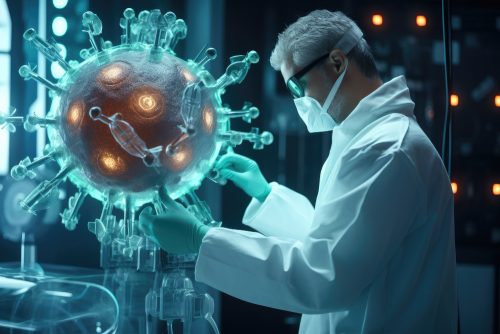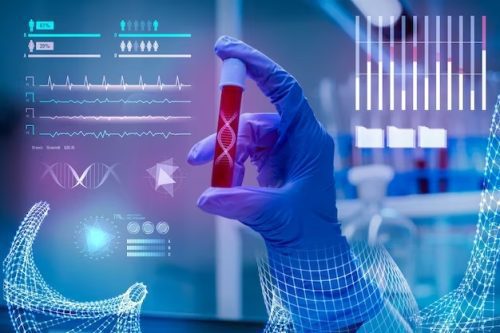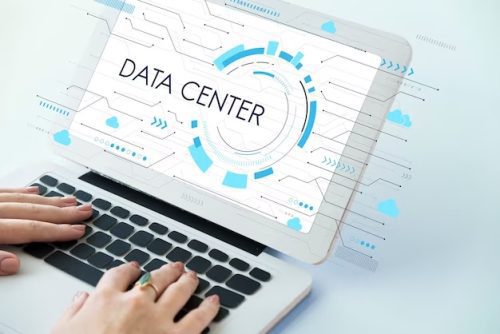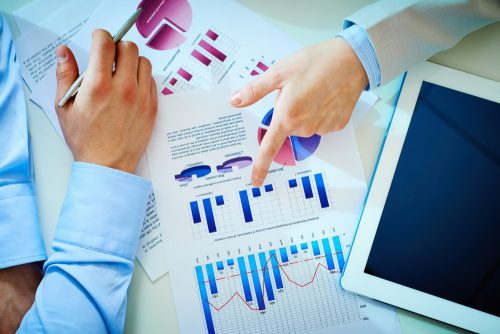Subscribe to Newsletter
Subscribe to Newsletter
Subscribe to Newsletter
Subscribe to Newsletter
Subscribe to Newsletter
Subscribe to Newsletter
Subscribe to Newsletter
Subscribe to Newsletter
Subscribe to Newsletter
Subscribe to Newsletter
Subscribe to Newsletter
Subscribe to Newsletter
Subscribe to Newsletter
Subscribe to Newsletter
Subscribe to Newsletter
Subscribe to Newsletter
Subscribe to Newsletter
Subscribe to Newsletter
Subscribe to Newsletter
Subscribe to Newsletter
Subscribe to Newsletter
Subscribe to Newsletter
Subscribe to Newsletter
Subscribe to Newsletter
Subscribe to Newsletter
Subscribe to Newsletter
Subscribe to Newsletter
Subscribe to Newsletter
Subscribe to Newsletter
Subscribe to Newsletter
Subscribe to Newsletter
Subscribe to Newsletter
Subscribe to Newsletter
Subscribe to Newsletter
Subscribe to Newsletter
Subscribe to Newsletter
Subscribe to Newsletter
Subscribe to Newsletter
Subscribe to Newsletter
Subscribe to Newsletter
Subscribe to Newsletter
Subscribe to Newsletter
Subscribe to Newsletter
Subscribe to Newsletter
Subscribe to Newsletter
Subscribe to Newsletter
Subscribe to Newsletter
Subscribe to Newsletter
Subscribe to Newsletter
Subscribe to Newsletter
Subscribe to Newsletter
Subscribe to Newsletter
Subscribe to Newsletter
Subscribe to Newsletter
Subscribe to Newsletter
Subscribe to Newsletter
Subscribe to Newsletter
Subscribe to Newsletter
Subscribe to Newsletter
Subscribe to Newsletter
Subscribe to Newsletter
Subscribe to Newsletter
Subscribe to Newsletter
Subscribe to Newsletter
Subscribe to Newsletter
Subscribe to Newsletter
Subscribe to Newsletter
Subscribe to Newsletter
Subscribe to Newsletter
Subscribe to Newsletter
Subscribe to Newsletter
Subscribe to Newsletter
Subscribe to Newsletter
Subscribe to Newsletter
Subscribe to Newsletter
Subscribe to Newsletter
Subscribe to Newsletter
Subscribe to Newsletter
Subscribe to Newsletter
Subscribe to Newsletter
Subscribe to Newsletter
Subscribe to Newsletter
Subscribe to Newsletter
Subscribe to Newsletter
Subscribe to Newsletter
Subscribe to Newsletter
Subscribe to Newsletter
Subscribe to Newsletter
Subscribe to Newsletter
Subscribe to Newsletter
Subscribe to Newsletter
Subscribe to Newsletter
Subscribe to Newsletter
Subscribe to Newsletter
Subscribe to Newsletter
Subscribe to Newsletter
Subscribe to Newsletter
Subscribe to Newsletter
Subscribe to Newsletter
Subscribe to Newsletter
Subscribe to Newsletter
Subscribe to Newsletter
Subscribe to Newsletter
Subscribe to Newsletter
Subscribe to Newsletter
Subscribe to Newsletter
Subscribe to Newsletter
Subscribe to Newsletter
Subscribe to Newsletter
Subscribe to Newsletter
Subscribe to Newsletter
Subscribe to Newsletter
Subscribe to Newsletter
Subscribe to Newsletter
Subscribe to Newsletter
Subscribe to Newsletter
Subscribe to Newsletter
Subscribe to Newsletter
Subscribe to Newsletter
Subscribe to Newsletter
Subscribe to Newsletter
Subscribe to Newsletter
Subscribe to Newsletter
Subscribe to Newsletter
Subscribe to Newsletter
Subscribe to Newsletter
Subscribe to Newsletter
Subscribe to Newsletter
Subscribe to Newsletter
Subscribe to Newsletter
Subscribe to Newsletter
Subscribe to Newsletter
Subscribe to Newsletter
Subscribe to Newsletter
Subscribe to Newsletter
Subscribe to Newsletter
Subscribe to Newsletter
Subscribe to Newsletter
Subscribe to Newsletter
Subscribe to Newsletter
Subscribe to Newsletter
Subscribe to Newsletter
Subscribe to Newsletter
Subscribe to Newsletter
Subscribe to Newsletter
Subscribe to Newsletter
Subscribe to Newsletter
Subscribe to Newsletter
Subscribe to Newsletter
Subscribe to Newsletter
Subscribe to Newsletter
Subscribe to Newsletter
Subscribe to Newsletter
Subscribe to Newsletter
Subscribe to Newsletter
Subscribe to Newsletter
Subscribe to Newsletter
Subscribe to Newsletter
Subscribe to Newsletter
Subscribe to Newsletter
Subscribe to Newsletter
Subscribe to Newsletter
Subscribe to Newsletter
Subscribe to Newsletter
Subscribe to Newsletter
Subscribe to Newsletter
Subscribe to Newsletter
Subscribe to Newsletter
Subscribe to Newsletter
Subscribe to Newsletter
Subscribe to Newsletter
Subscribe to Newsletter
Subscribe to Newsletter
Subscribe to Newsletter
Subscribe to Newsletter
Subscribe to Newsletter
Subscribe to Newsletter
Subscribe to Newsletter
Subscribe to Newsletter
Subscribe to Newsletter
Subscribe to Newsletter
Subscribe to Newsletter
Subscribe to Newsletter
Subscribe to Newsletter
Subscribe to Newsletter
Subscribe to Newsletter
Subscribe to Newsletter
Subscribe to Newsletter
Subscribe to Newsletter
Subscribe to Newsletter
Subscribe to Newsletter
Subscribe to Newsletter
Subscribe to Newsletter
Subscribe to Newsletter
Subscribe to Newsletter
Subscribe to Newsletter
Subscribe to Newsletter
Subscribe to Newsletter
Subscribe to Newsletter
Subscribe to Newsletter
Subscribe to Newsletter
Subscribe to Newsletter
Subscribe to Newsletter
Subscribe to Newsletter
Subscribe to Newsletter
Subscribe to Newsletter
Subscribe to Newsletter
Subscribe to Newsletter
Subscribe to Newsletter
Subscribe to Newsletter
Subscribe to Newsletter
Subscribe to Newsletter
Subscribe to Newsletter
Subscribe to Newsletter
Subscribe to Newsletter
Subscribe to Newsletter
Subscribe to Newsletter
Subscribe to Newsletter
Subscribe to Newsletter
Subscribe to Newsletter
Subscribe to Newsletter
Subscribe to Newsletter
Subscribe to Newsletter
Subscribe to Newsletter
Subscribe to Newsletter
Subscribe to Newsletter
Subscribe to Newsletter
Subscribe to Newsletter
Subscribe to Newsletter
Subscribe to Newsletter
Subscribe to Newsletter
Subscribe to Newsletter
Subscribe to Newsletter
Subscribe to Newsletter
Subscribe to Newsletter
Subscribe to Newsletter
Subscribe to Newsletter
Subscribe to Newsletter
Subscribe to Newsletter
Subscribe to Newsletter
Subscribe to Newsletter
Subscribe to Newsletter
Subscribe to Newsletter
Subscribe to Newsletter
Subscribe to Newsletter
Subscribe to Newsletter
Subscribe to Newsletter
Subscribe to Newsletter
Subscribe to Newsletter
Subscribe to Newsletter
Subscribe to Newsletter
Subscribe to Newsletter
Subscribe to Newsletter
Subscribe to Newsletter
Subscribe to Newsletter
Subscribe to Newsletter
Subscribe to Newsletter
Subscribe to Newsletter
Subscribe to Newsletter
Subscribe to Newsletter
Subscribe to Newsletter
Subscribe to Newsletter
Subscribe to Newsletter
Subscribe to Newsletter
Subscribe to Newsletter
Subscribe to Newsletter
Subscribe to Newsletter
Subscribe to Newsletter
Bio refinery- From Biomass to Value Based Bio products
Transforming Biomass into Sustainable Solutions
Online/ e-LMS
Mentor Based
Moderate
1 Month
About
The Bio-refinery: From Biomass to Value-Based Bioproducts program is a pioneering initiative designed to transform organic biomass into a diverse array of valuable bioproducts, including biofuels, bioplastics, and biochemicals. By leveraging advanced biotechnological and chemical processes, this program aims to extract maximum value from biomass resources, such as agricultural waste, forestry byproducts, and algae. The goal is to develop scalable, efficient, and sustainable methods for biomass conversion, thereby reducing waste, minimizing environmental impact, and creating new sources of revenue for industries.
This program serves as a nexus for collaboration among scientists, engineers, industry leaders, and policymakers, fostering innovation across disciplines to tackle technical challenges and drive the bioeconomy forward. It focuses on optimizing the entire supply chain—from sustainable biomass sourcing to final product marketing—to ensure economic and environmental sustainability. Educational and training components are also integral, aiming to equip a new generation of professionals with the skills necessary to advance this rapidly evolving field. Through its comprehensive approach, the program seeks to establish a robust framework for the bio-refinery sector, encouraging wider adoption and integration of bioproducts into everyday use.
Aim
The aim of the “Bio-refinery: From Biomass to Value-Based Bioproducts” program is to advance the technology and processes required to efficiently convert biomass into a range of high-value bioproducts, thereby promoting sustainability and reducing reliance on non-renewable resources. This program seeks to enhance the economic viability of bio-refineries by improving process efficiencies, developing new value-added products, and fostering market acceptance of bioproducts. Through collaboration with industry, academia, and government entities, the program strives to drive innovation, support circular economy principles, and contribute to a more sustainable future by transforming organic waste and plant materials into useful products such as biofuels, bioplastics, and biochemicals.
Program Objectives
- Understand the composition and properties of different types of biomass.
- Master various conversion processes used in bio refineries.
- Analyze the economic and environmental impacts of bio refineries.
- Develop skills in designing and optimizing bio refinery processes.
- Promote innovation in the development of sustainable bio products.
Program Structure
1.Biorefinery- Definition and its Classification
2.Two Key Conversion Processes
3.Integration of Biorefining in the Processing Industry
4.Economic Viability of Biorefinery System
5.Project Report Submission/ Article Writing
Participant’s Eligibility
- Undergraduate students in Chemical Engineering, Environmental Science, Biochemistry, or related fields.
- Professionals in the energy, environmental, or chemical industries seeking to expand their knowledge in bio refinery technologies.
- Individuals with a basic understanding of chemistry and biology.
Program Outcomes
- Resource Efficiency: Biomass, including agricultural residues, forestry waste, and organic municipal waste, is utilized efficiently, reducing the burden on landfills and minimizing environmental pollution.
- Green Energy Production: Biomass can be converted into biofuels such as biodiesel, bioethanol, and biogas, providing renewable alternatives to fossil fuels and reducing greenhouse gas emissions.
- Value-added Products: Through advanced processing techniques, biomass can be transformed into high-value bio-based products such as biochemicals, bioplastics, bio-based materials, and specialty chemicals, tapping into lucrative markets and reducing dependence on petrochemicals.
- Circular Economy: By utilizing biomass as feedstock, the bio refinery contributes to the concept of a circular economy, where waste materials are converted into valuable resources, fostering sustainability and reducing reliance on finite resources.
- Carbon Sequestration: Certain bio refinery processes, such as carbon capture and utilization (CCU), can help sequester carbon dioxide from the atmosphere, contributing to climate change mitigation efforts.
Fee Structure
Standard Fee: INR 29,998 USD 640
Discounted Fee: INR 14999 USD 320
We are excited to announce that we now accept payments in over 20 global currencies, in addition to USD. Check out our list to see if your preferred currency is supported. Enjoy the convenience and flexibility of paying in your local currency!
List of CurrenciesBatches
Certificate
Program Assessment
Certification to this program will be based on the evaluation of following assignment (s)/ examinations:
| Exam | Weightage |
|---|---|
| Mid Term Assignments | 50 % |
| Project Report Submission (Includes Mandatory Paper Publication) | 50 % |
To study the printed/online course material, submit and clear, the mid term assignments, project work/research study (in completion of project work/research study, a final report must be submitted) and the online examination, you are allotted a 1-month period. You will be awarded a certificate, only after successful completion/ and clearance of all the aforesaid assignment(s) and examinations.
Program Deliverables
- Access to e-LMS
- Real Time Project for Dissertation
- Project Guidance
- Paper Publication Opportunity
- Self Assessment
- Final Examination
- e-Certification
- e-Marksheet
Future Career Prospects
Participants can pursue careers in various sectors including:
- Renewable energy companies focusing on biofuel production.
- Chemical industries developing bio-based chemicals and materials.
- Research institutions and academic roles focusing on sustainable technologies.
- Government and policy-making roles to promote bio economy initiatives.
- Environmental consulting firms providing expertise in sustainability and waste management.
Job Opportunities
- Process Engineer
- Research Scientist
- Sustainability Analyst
- Regulatory Affairs Manager
- Quality Control Specialist
- Marketing and Sales Professional
Enter the Hall of Fame!
Take your research to the next level!
Achieve excellence and solidify your reputation among the elite!
Related Courses

Artificial Intelligence for …

AI Applications in Pharmacy: …

SQL & Power BI Program: …

Data Visualization using …
Recent Feedbacks In Other Workshops
The course was more theoretical than practical.
nothing

